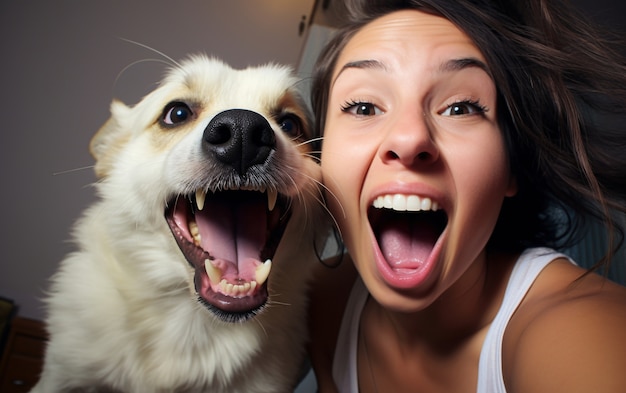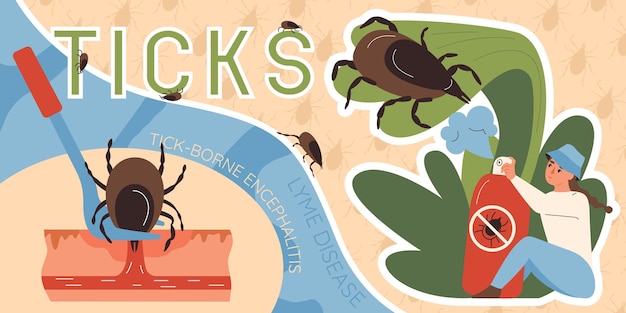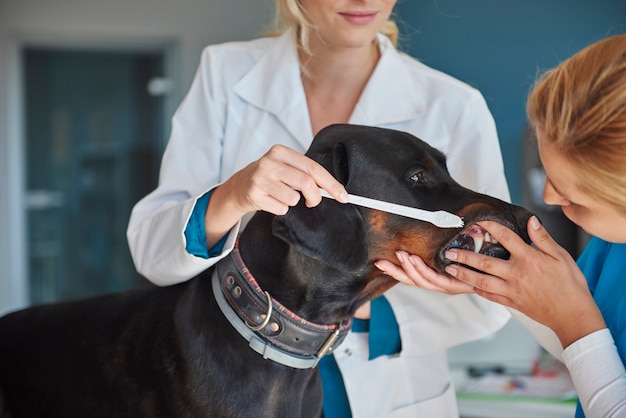How to Maintain Healthy Pet Teeth at Home


How to Maintain Healthy Pet Teeth at Home
Keeping your pet’s smile bright and healthy is about more than just fresh breath; it’s a cornerstone of their overall well-being. Dental disease is one of the most common health issues seen by veterinarians, yet many pet owners are surprised to learn how quickly dental problems can develop in both dogs and cats. At Pet Lovers Animal Hospital Long Beach, located at 5211 Atlantic Ave, Long Beach, CA 90805, our veterinary team is passionate about helping families in Long Beach and surrounding communities understand the importance of at-home pet dental care. This guide will walk you through the daily habits and practical tips that can support your efforts between professional dental cleanings, ensuring your pet enjoys healthy pet teeth for years to come.
Whether you’re searching for the right "vet near me" or simply looking for ways to keep your pet’s teeth clean at home, you’ll find everything you need to know here. We’ll explore how to spot early signs of dental trouble, what causes dental issues, which steps you can take at home, and when it’s time to schedule an appointment with our veterinary professionals. For those curious about professional support, our pet dental cleaning services in Long Beach offer a comprehensive approach to oral health.
Let’s get started with the basics of maintaining those healthy pet teeth—right at home.
Recognizing Dental Problems in Pets: Signs Your Pet’s Teeth Need Attention
Many pet owners wonder how to tell if their dog or cat is developing dental issues. The signs can be subtle at first, but catching them early is key to preventing discomfort and more serious problems. Symptoms that may indicate dental trouble include persistent bad breath, red or swollen gums, visible tartar buildup on the teeth, and reluctance to chew or play with toys. Some pets might paw at their mouth, drop food while eating, or show a sudden preference for softer foods. In more advanced cases, you might notice bleeding from the gums, loose or missing teeth, or swelling near the face or jaw.
Behavioral changes are also important clues. If your usually playful dog becomes withdrawn or your affectionate cat seems irritable, dental discomfort could be a factor. Since pets are experts at hiding pain, these signs can sometimes be mistaken for normal aging or behavioral quirks. Regularly checking your pet’s mouth for changes and being alert to shifts in appetite or mood can help you identify issues before they become severe.
If you spot any of these warning signs, it’s time to reach out to a veterinary professional for a thorough examination. Early intervention can prevent complications and keep your pet comfortable. Our team in Long Beach is always here to answer your questions about dental repair services for pets and to provide guidance tailored to your pet’s unique needs.
Why Dental Problems Develop: Causes and Contributing Factors
Understanding the causes behind dental disease can help you take proactive steps to protect your pet’s oral health. The most common culprit is plaque, a sticky film of bacteria that forms on the teeth after eating. If not removed, plaque hardens into tartar, which can irritate the gums and lead to inflammation, known as gingivitis. Over time, untreated dental disease can progress to periodontitis, a more advanced stage that affects the tissues and bone supporting the teeth.
Diet and genetics also play a role. Pets who eat primarily wet or soft food may have a higher risk of plaque buildup compared to those who chew on crunchy kibble or dental treats. Some breeds, particularly small dogs and certain cats, are genetically predisposed to dental issues and may require more frequent care. Age is another factor; dental disease becomes more common as pets get older.
Other contributing elements include underlying health conditions such as diabetes or kidney disease, which can make pets more susceptible to oral infections. Lack of regular home care and infrequent professional cleanings allow problems to escalate. In Long Beach and nearby communities, we often see pets with dental concerns exacerbated by environmental factors such as hard water or seasonal allergies, which can impact oral health.
By understanding what leads to dental disease, you can better appreciate the importance of consistent at-home pet dental care and regular check-ups with a dental vet near me.
Professional Veterinary Dental Care in Long Beach: What to Expect
While at-home care is vital, there are situations where professional intervention is the safest and most effective option for your pet. Veterinary dental cleanings in Long Beach involve more than just removing visible tartar; they include a comprehensive oral exam, cleaning above and below the gumline, and sometimes dental radiography to identify hidden issues.
During a professional cleaning, our veterinary team uses specialized equipment to safely and thoroughly clean your pet’s teeth under anesthesia. This allows us to reach areas that toothbrushes can’t access and to address problems like loose or infected teeth. Treatment options may involve scaling and polishing, dental extractions if necessary, and recommendations for ongoing home care.
Some pets require additional procedures such as pet oral surgery or pet tooth extractions, particularly if advanced disease or trauma is present. Our veterinary professionals will discuss all options with you, ensuring you understand the benefits and risks of each approach. After the procedure, we’ll provide detailed instructions for recovery and ongoing maintenance.
Incorporating professional dental cleanings into your pet’s wellness plan is one of the most effective ways to maintain healthy pet teeth in Long Beach. Our clinic is equipped to handle a wide range of dental procedures, and we encourage pet owners to schedule appointments as part of their preventive care routine.
At-Home Pet Dental Care: Daily Routines and Preventive Tips
Supporting your pet’s dental health at home is one of the best investments you can make in their overall wellness. Establishing a daily routine may seem daunting at first, but with patience and consistency, most pets learn to accept—even enjoy—the process.
Brushing your pet’s teeth is the gold standard for at-home pet dental care. Using a pet-specific toothbrush and toothpaste, gently brush the outer surfaces of your dog or cat’s teeth. If your pet is new to brushing, start slowly by letting them lick the toothpaste and gradually introducing the brush. Consistency is key; daily brushing yields the best results, but even a few times a week can make a significant difference.
Dental treats and chews can also help reduce plaque buildup, though they should never replace brushing entirely. Look for products approved by the Veterinary Oral Health Council (VOHC), which meet standards for safety and effectiveness. Certain toys are designed to promote oral health by encouraging chewing, but always supervise your pet to prevent accidental swallowing or damage.
Diet plays a role as well. Feeding a high-quality, balanced diet and limiting table scraps can support healthy pet teeth. Some prescription diets are formulated to reduce plaque and tartar; your veterinarian can recommend options suited to your pet’s needs.
Regularly inspecting your pet’s mouth for changes helps you catch issues early. Lift the lips and look for redness, swelling, or discoloration. If you notice anything unusual, or if your pet resists having their mouth handled, it may be time to schedule an appointment for a professional exam.
By incorporating these habits, you can help extend the time between professional cleanings and keep your pet’s mouth healthy and pain-free. For more information about maintaining dental health at home or to discuss which products are best for your pet, don’t hesitate to reach out to our veterinary professionals.
When to Seek Veterinary Dental Care: Recognizing Urgent Needs
Despite your best efforts, there are times when at-home care isn’t enough and professional attention is required. You should contact a veterinarian if you notice persistent bad breath, significant tartar buildup, bleeding gums, loose teeth, or signs of pain while eating. Changes in appetite, drooling, or swelling around the mouth or face are also red flags that should never be ignored.
Prompt action is especially important if your pet stops eating, becomes lethargic, or shows signs of distress. Dental infections can spread to other parts of the body, leading to serious health complications. Our team in Long Beach is equipped to diagnose and treat a full range of dental issues, from routine cleanings to more advanced procedures like pet oral surgery.
If you’re unsure whether your pet needs immediate attention, our veterinary team is always available to answer your questions. Scheduling regular dental exams can help catch problems early and prevent more extensive—and costly—interventions down the road. Remember, maintaining healthy pet teeth isn’t just about appearances; it’s a vital part of your pet’s quality of life.
Your Trusted Partner for Healthy Pet Teeth in Long Beach
A healthy mouth means a happier, more energetic pet—and peace of mind for you. At Pet Lovers Animal Hospital Long Beach, our commitment to smart, compassionate care ensures your pet receives the highest standard of dental support, whether you’re visiting for an annual cleaning or guidance on at-home routines. Our veterinary professionals are proud to serve Long Beach and surrounding communities, helping local families discover the benefits of regular at-home pet dental care alongside professional support.
If you’re searching for a "vet near me" who truly understands your pet’s needs, look no further. Schedule an appointment today for pet dental cleaning services in Long Beach or call our friendly veterinary team at (562) 349-0000. We welcome your questions and are happy to walk you through every step of your pet’s dental care journey.
For directions, visit our Long Beach location. With a focus on preventive care, advanced dental procedures, and ongoing education, we’re your partner in maintaining healthy pet teeth and a lifetime of happy smiles.
This blog is for informational purposes only and is not a substitute for professional veterinary care. Always consult your veterinarian for specific medical advice regarding your pet’s health.


















